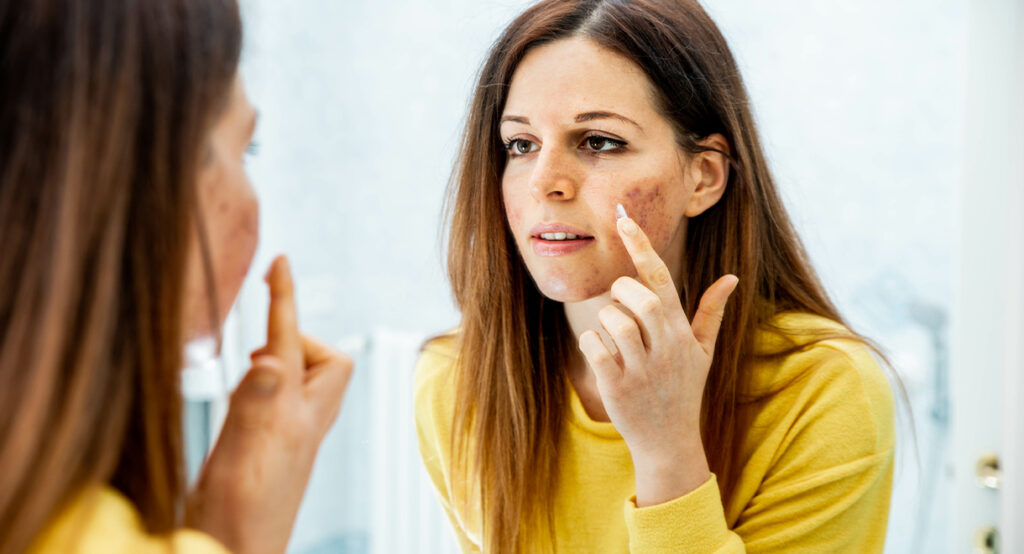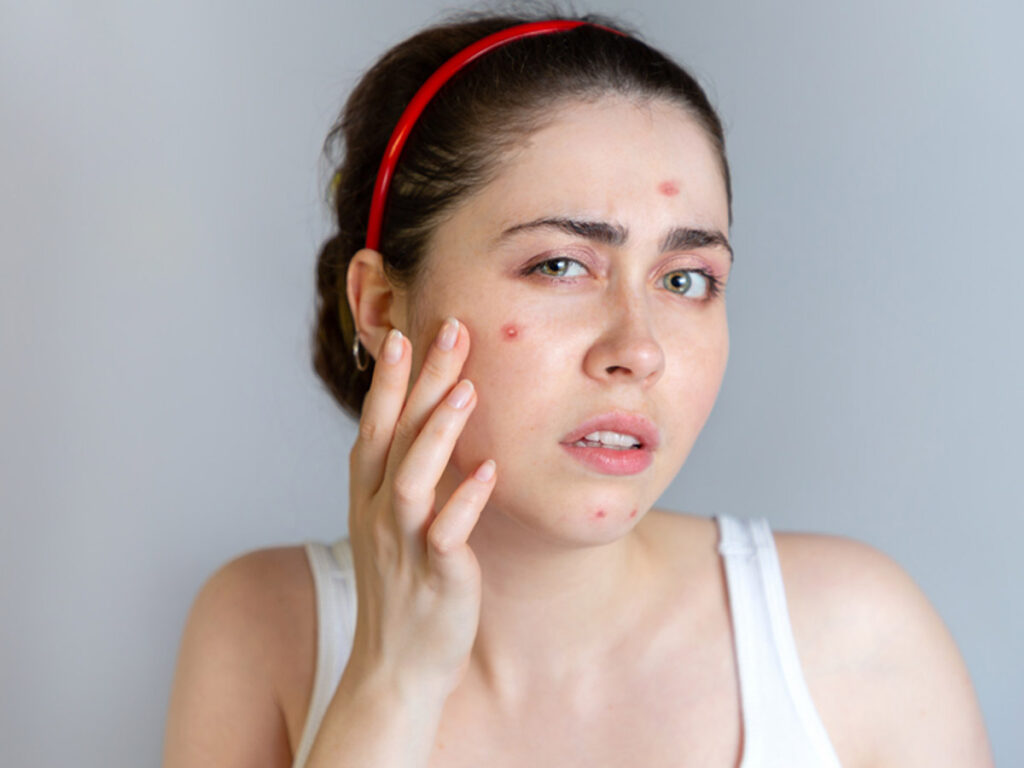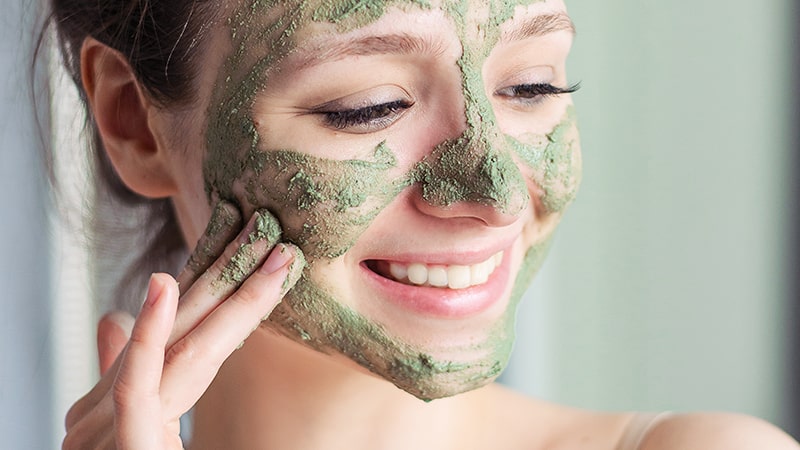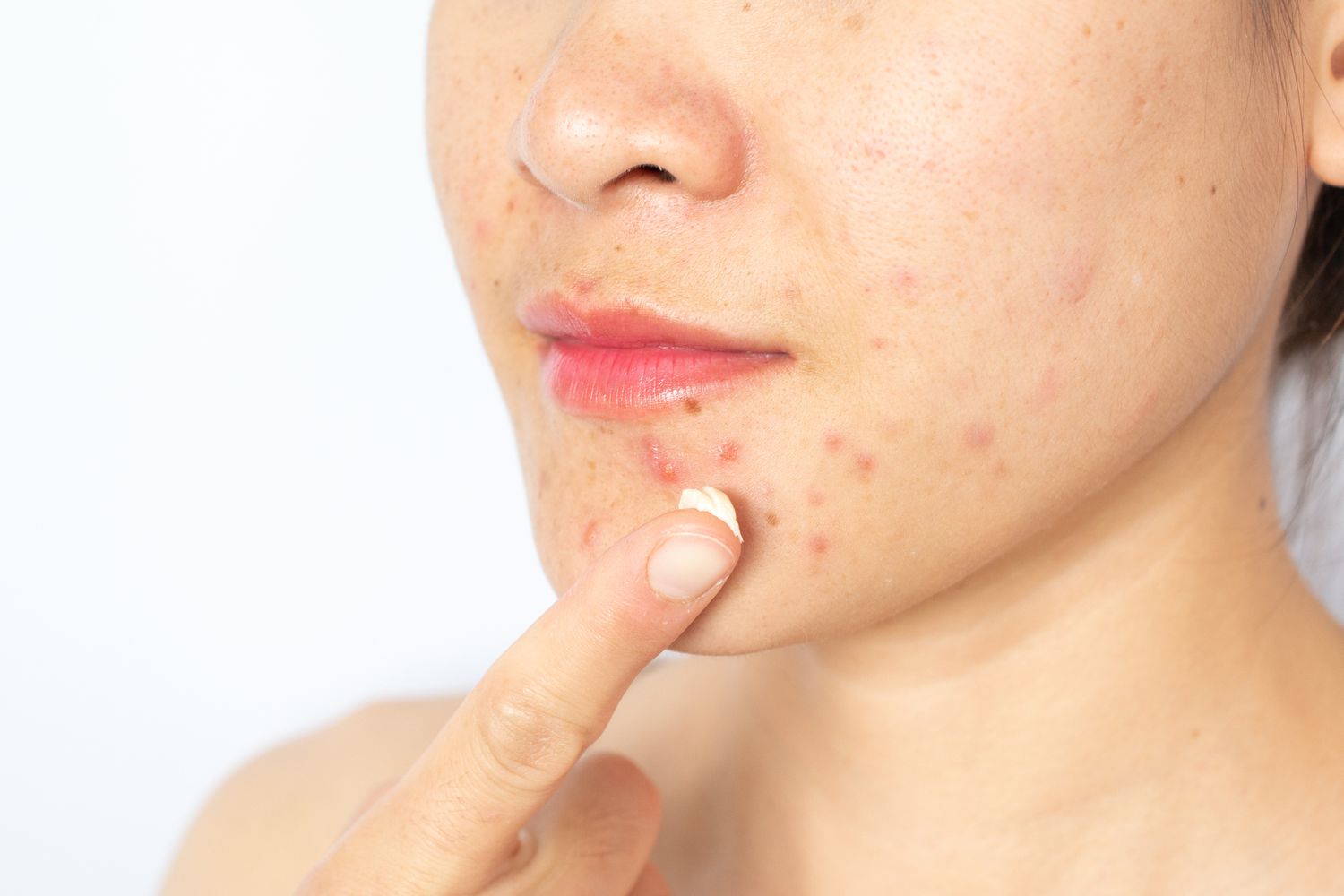Acne is a prevalent skin condition that affects people of all ages, often causing significant emotional distress and skin damage. As it mostly surfaces during puberty, it can significantly impact an individual’s self-esteem and body image. Moreover, it is not only about physical appearance. Acne can lead to painful lesions, discomfort, and even permanent scarring in severe cases. The management of acne, however, isn’t always straightforward. Prescription medications and over-the-counter treatments can have side effects and may not work for everyone.
This is where natural remedies for acne treatment come into the picture. They offer an alternative, more holistic approach to managing acne. This article will explore the top 10 natural remedies for acne, promoting clearer, healthier skin while minimizing harmful side effects.
Understanding Acne
Acne is a common skin condition that affects people of all ages. It occurs when the hair follicles become clogged with oil and dead skin cells, leading to the formation of pimples, blackheads, and whiteheads. While there are many over-the-counter and prescription treatments available for acne, natural remedies can be effective alternatives that are gentle on the skin.
Causes of Acne

Understanding the causes of acne marks is essential for choosing the right natural remedies for acne treatment.
1. Hormonal Fluctuations: During puberty, menstrual cycles, and pregnancy, hormone levels change, causing increased sebum production.
2. Genetic Factors: A family history of acne can make you more susceptible.
3. Diet: Certain foods, such as dairy and those rich in carbohydrates, can trigger acne.
4. Stress: High stress levels can worsen existing acne.
5. Medications: Some drugs, including certain contraceptives and corticosteroids, can cause or worsen acne.
6. Poor Hygiene: Not regularly cleaning your skin or removing makeup can clog pores, causing breakouts.
Types of Acne

The different types of acne, classified by their appearance and severity, are as follows:
1. Blackheads (Open Comedones): Small, dark spots that form when the surface of a blocked follicle interacts with the air.
2. Whiteheads (Closed Comedones): Tiny, pale bumps created when the blocked follicle’s opening is completely sealed.
3. Papules: Small, red, and tender bumps that indicate inflammation or infection in the hair follicles.
4. Pustules: Red and tender bumps that contain pus at their tips.
5. Nodules: Large, hard, and painful lumps that reside beneath the skin’s surface.
6. Cysts: Deep, painful lumps filled with pus that can cause long-lasting scars.
10 Effective Natural Remedies for Acne Treatment

1. Tea Tree Oil
Tea tree oil is a powerful natural remedy for acne due to its antibacterial and anti-inflammatory properties. It helps kill acne-causing bacteria, reduce redness, and calm inflammation. To use tea tree oil, dilute a few drops with a carrier oil, such as coconut oil or jojoba oil, and apply it to the affected areas with a cotton swab.
Avoid applying it directly to the skin as it can cause irritation. Tea tree oil can be used as a spot treatment or added to facial cleansers and moisturizers. It’s important to do a patch test before using tea tree oil and discontinue use if any adverse reactions occur.
2. Aloe Vera
Aloe vera is a popular natural remedy for acne due to its soothing and healing properties. It helps reduce inflammation, redness, and irritation associated with acne. Aloe vera gel contains antioxidants, enzymes, and vitamins that promote skin repair and regeneration.
To apply aloe vera, extract the gel from the plant’s leaves and gently apply it to the affected areas. Leave it on for 10-15 minutes before rinsing off with water. You can also find commercially available aloe vera gels or creams. It’s important to choose pure and organic aloe vera products without added fragrances or chemicals. Regular use of aloe vera can help calm acne-prone skin and promote a healthier complexion.
3. Witch Hazel
Witch hazel is a natural astringent that has been used for centuries to treat various skin conditions, including acne. It helps reduce inflammation, minimize pore size, and control excess oil production, making it an effective remedy for acne-prone skin.
To apply witch hazel, soak a cotton ball or pad with the liquid extract and gently swipe it over the affected areas. It can be used as a toner after cleansing the face or as a spot treatment for individual blemishes. Allow the witch hazel to dry before applying any moisturizers or other products. Regular use of witch hazel can help soothe and clarify the skin, improving the appearance of acne over time.
4. Apple Cider Vinegar
Apple cider vinegar is a popular natural remedy for acne due to its ability to balance the skin’s pH levels. It contains acetic acid, which has antimicrobial properties and helps reduce bacteria on the skin. By restoring the skin’s natural pH, apple cider vinegar can prevent the overgrowth of acne-causing bacteria.
To apply, dilute apple cider vinegar with water in a 1:1 ratio. Dip a cotton ball or pad into the solution and gently apply it to the affected areas. Leave it on for a few minutes before rinsing off with water. It’s important to start with a lower concentration and gradually increase the strength as per your skin’s tolerance. Avoid applying undiluted apple cider vinegar directly to the skin, as it may cause irritation.
5. Honey
Honey is a natural remedy for acne known for its antibacterial and moisturizing properties. It contains enzymes and antioxidants that can help combat acne-causing bacteria and reduce inflammation. Honey also acts as a natural humectant, helping to lock in moisture and keep the skin hydrated.
To apply, ensure you are using raw, organic honey. Take a small amount and apply it directly to the affected areas or as a mask on the entire face. Leave it on for 10-15 minutes, allowing the honey to work its magic, and then rinse off with warm water. Regular use of honey can help soothe acne-prone skin, reduce breakouts, and promote a healthier complexion.
6. Green Tea
Green tea is a natural remedy for acne that is packed with antioxidants, making it a powerful ally in promoting clear and healthy skin. It contains compounds called catechins, which have antibacterial properties and help reduce inflammation. These catechins also assist in regulating sebum production, which can help prevent clogged pores and acne breakouts.
To apply green tea, brew a cup of green tea and let it cool. Then, use a cotton ball or pad to gently apply the cooled tea to the affected areas. Allow it to dry before rinsing off with water. Alternatively, you can freeze the brewed green tea in an ice cube tray and use the ice cubes as a soothing and refreshing toner. Regular use of green tea can help improve the appearance of acne and promote a healthier complexion.
7. Lemon Juice
Lemon juice is a natural remedy for acne that acts as a natural exfoliant and brightener. It contains citric acid, which helps remove dead skin cells, unclog pores, and reduce the appearance of acne scars. The acidic nature of lemon juice also helps balance the skin’s pH level, which can aid in controlling oil production.
To apply, squeeze fresh lemon juice and dilute it with equal parts water. Use a cotton ball or pad to apply the mixture to the affected areas. Leave it on for 10-15 minutes before rinsing off with water. It’s important to note that lemon juice can cause sensitivity in some individuals, so it’s recommended to do a patch test before applying it to the entire face. Additionally, lemon juice can make your skin more sensitive to sunlight, so it’s advisable to use sunscreen when going outside after applying lemon juice.
8. Neem
Neem has been used as a traditional remedy for acne and blemishes for centuries due to its antibacterial and anti-inflammatory properties. It helps fight acne-causing bacteria, reduce inflammation, and soothe irritated skin.
To apply neem, mix neem powder or neem oil with water to form a paste. Gently apply the paste to the affected areas and leave it on for 15-20 minutes before rinsing off with water. Alternatively, you can use neem-based skincare products like face washes or creams. Regular use of neem can help combat acne, minimize breakouts, and promote clearer and healthier skin.
9. Turmeric
Turmeric is a natural remedy for acne renowned for its anti-inflammatory and antioxidant properties. It contains an active compound called curcumin, which helps reduce inflammation and soothe acne-prone skin. Turmeric also acts as an antioxidant, protecting the skin from free radicals and promoting a healthy complexion.
To apply turmeric, mix turmeric powder with a small amount of water or honey to create a paste. Gently apply the paste to the affected areas and leave it on for 15-20 minutes before rinsing off with water. Be cautious as turmeric can stain clothing and skin temporarily. Regular use of turmeric can help calm inflammation, prevent breakouts, and improve the overall appearance of the skin.
10. Rosehip Seed Oil
Rosehip seed oil is a natural remedy for acne that offers nourishing and regenerative effects on the skin. It is rich in essential fatty acids, vitamins, and antioxidants, which help moisturize the skin, promote cell regeneration, and reduce the appearance of acne scars.
To apply rosehip seed oil, cleanse your face and pat it dry. Take a few drops of rosehip seed oil and gently massage it onto the affected areas. Allow the oil to absorb into the skin. It can be used as a spot treatment or applied to the entire face. Regular use of rosehip seed oil can help improve the texture and tone of the skin, diminish acne scars, and promote a healthy complexion.
Conclusion
Acne can be a challenging condition to deal with, but there are effective natural remedies for acne available that can help improve the skin’s appearance and reduce breakouts. The 10 natural remedies discussed, including tea tree oil, aloe vera, witch hazel, apple cider vinegar, honey, green tea, lemon juice, neem, turmeric, and rosehip seed oil, offer various benefits in combating acne.
These remedies for acne are known for their antibacterial, anti-inflammatory, exfoliating, and moisturizing properties. However, it’s important to remember that everyone’s skin is different, and what works for one person may not work for another. It’s recommended to do a patch test, consult a dermatologist if needed, and maintain a consistent skincare routine. With patience and regular use, these natural remedies can contribute to clearer, healthier, and more radiant skin.


